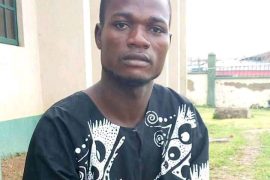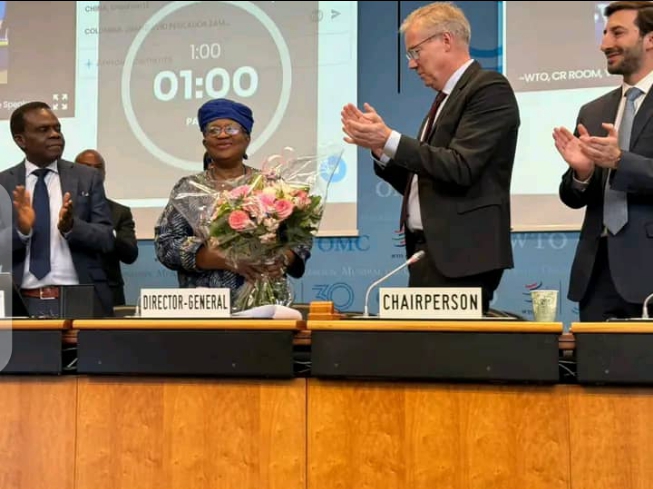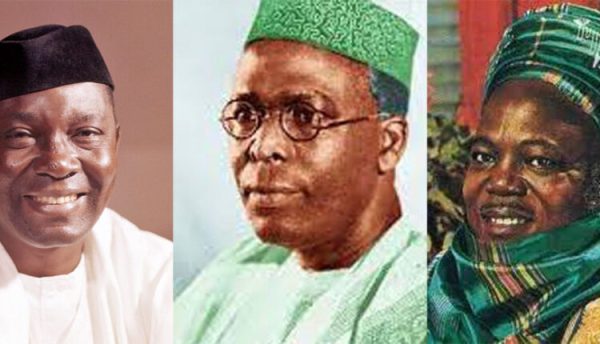Nigeria @58: How not to claim an independent nation

By Sunday Elom
“I pledge to Nigeria my country,
To be faithful, loyal and honest,
To serve Nigeria with all my strength,
To defend her unity and uphold honour and glory,
So help me God.”
This is a Nigeria national pledge, which every Nigerian recites mostly on every national function with all sincerity, dedication and sense of commitment.
All things being equal, the pledge should bring every Nigerian to the circle of responsibility, accountability, patriotism and oneness; despite individual differences, ethnic, religious and political affiliation, language or social status.
Unfortunately, the reverse has been the case. The Nigeria we know is the epitome of the popular adage, “Do as I say, not as I do.”
The Nigerian political founding fathers fought for the independence of the country from colonial masters, the British with one accord. Ironically, since the breakup from external administrative lordship, the country has been periodically bedeviled and beclouded by one quagmire or the other, from the tempest of series of military regimes to crab-movement form of democratic system.
Obviously, not less than 90% percent of every country’s populace prefer democracy to other systems of governance. But in Nigeria particularly, there is a question that has been craving for a pragmatic answer— Is Nigeria actually independent?
A myopic understanding of the word, “independent” will throw YES as an answer to the question. But critical view tends to prove the YES answer wrong, with certain basic reasons.
First, is Nigeria independent from unconstitutional judicial interference by the political lords? The honest answer is NO. Independent of judiciary is theoretically enshrined in the 1999 constitution of the Federal Republic of Nigeria.
Unfortunately, the judicial system of Nigeria is obviously piloted by the political lords in executive and legislative arms of government. It was popularly believed that the judiciary is the last hope of common man.
Nowadays, judiciary seems to be the lost hope of common man. Judgement of a case depends on the parallel or unequal status of the parties involved. Before you prepare a hangman noose for the writer of this article, answer these questions with utmost sincerity.
First, why is Col. Sanbo Dasuki still in jail till now, even when international court, ECOWAS court ordered his release?
“The Court of the Economic Community of West African States, ECOWAS, on Tuesday declared the arrest and detention of former National Security Adviser, Sambo Dasuki, as unlawful and arbitrary.
“The court also held that the further arrest of Mr. Dasuki by government on November 4, after he was granted bail by a court of law, amounts to a mockery of democracy and the rule of law.
“The court ruled that Federal Government should pay a sum of N15 million as damages to Mr. Dasuki.
“It also decided that the cost of litigation will be summed up and charged against the Nigerian government.”
The above quote is an extract of some media reports on Dasuki’s case. But what happened? The answer is obvious.
The issue here is not whether Dasuki mismanaged the said fund or not. But the independence of judiciary.
Second, why are journalists jailed at will not actually because they have violated the law but because “the order is from above”? The case of the Premium Times reporter, Samuel Ogundipe is still fresh in people’s minds.
The instances are numerous. This therefore poses a visible doubt on the independence of Nigeria if her judicial system is only for those that command power.
Another question to answer is, ‘is Independent National Electoral Commission, INEC, independent’?
The electoral body saddled with the responsibility of conducting free, fair and credible elections in the country has been paralyzed, that what the commission calls smooth, free, fair and credible elections cast deep doubt on the yardstick for determining when election is free, fair and credible.
Honest evaluation of recently concluded governorship elections in Ekiti state and Osun state explains this point better.
Third question is, ‘is the media free’? Obviously, a lot of personalities will call this particular article a derogatory one, hate speech or fake news. But has it not been obvious that any media content that tries to make the government or a particular group of power custodians accountable is easily proscribed as either fake news or derogation against the targeted party?
In recent past, some journalists have been unconstitutionally jailed, some media outlets attacked.
There are a lot of other arms of government, including legislature, the executive, the security sector, educational sector and the rest, that basically operate on “the order from above” syndrome.
The fact is, if all these major pillars of government, especially the Judiciary, the INEC and the Media are not independent of unconstitutional influence and interference, the independence of Nigeria is still vague.
Remember, independence of a nation include freedom of expression by the citizens, dividends of democracy, effective application of rule of law and practical separation of power. Till these are achieved, Nigeria can only be regarded as being geographically independent.
The fact is, if all these major pillars of government, especially the Judiciary, the INEC and the Media are not independent of unconstitutional influence and interference, the independence of Nigeria is still vague.




